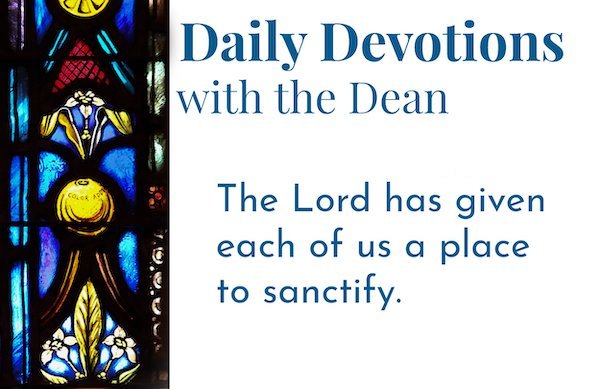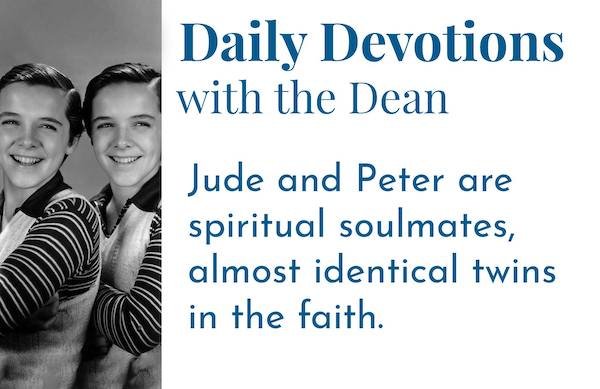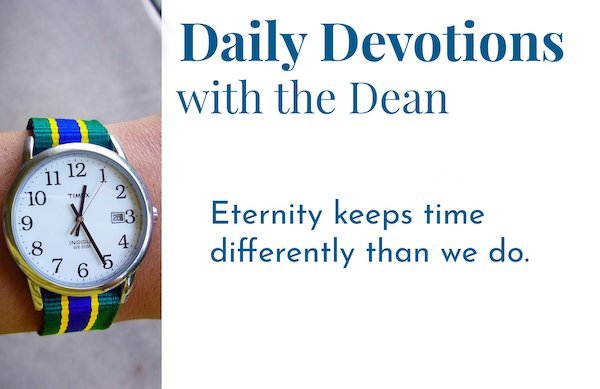Wednesday • 12/13/2023 •
We’re taking a detour from the Daily Office readings for a few days, as we consider several aspects of worship: corporate and personal. The thoughts offered here are excerpts from articles I wrote for Worship Leader Magazine a few years ago. We’ll resume our reflections on the Daily Office this next Monday.
Singing Is Believing
The different ways worshiping communities organize their songs says a lot about how they believe. A Presbyterian hymnal may organize songs around systematic theology categories: God, Christ, Holy Spirit, Church, Salvation, Christian Living. People in those worship settings care a lot about theological coherence and logic: how they sing is how they believe. An Episcopal hymnal will organize songs around the Christian year, and thus, the life of Christ, from Advent to Epiphany to Lent to Holy Week and Easter to Pentecost. Liturgical folks want to see themselves folded into Christ’s story: how they sing is how they believe.
At one church in which I led worship, I needed to think about upbeat songs, on the one hand, and contemplative songs, on the other. How we sang is how we believed: there, we valued a “praise and worship” flow. In another setting, an important principle was capo settings for guitar: open capo songs (in D, G, C, A, E), capo 3 songs (in F, Bb, Eb), capo 4 songs (in F# or B). Smooth musical transitions and sonic consonance were crucial, because how we sang is how we believed.
It was the same for the people who gave us the Book of Psalms. Returning from captivity in Babylon, the generation of Ezra and Nehemiah undertook reforms to re-establish their identity and reorder their life under God: rebuilding Jerusalem’s wall and then the Temple, re-emphasizing the reading and expounding of God’s Word, and restoring biblical marriage and Sabbath laws. This also happened to be the generation that gave the Book of Psalms its final shape. No record exists explaining just how, but they made that process a part of the re-establishment of identity and reordering of life under God.
The very organization of the Book of Psalms tells the story this generation wanted to tell about who they are, who their God is, and what he is up to in the world. Thus, the final edition of the Psalms includes five superscriptions spread out over the course of the Psalter, dividing the Psalter into five “Books.” In addition, each “Book” begins with a psalm or psalms announcing its theme, and then closes with a psalm or psalms rounding out its theme, followed by a doxology.
“Book One” (Psalms 1-41) recounts the obstacles God overcame in bringing David to the throne, and this psalm-cluster features psalms from a troubled David. “Book One” begins with an astounding triad: Psalm 1 commends the Law; Psalm 2 announces God’s prophetic plan to establish his Kingdom under his royal Messiah; and Psalm 3 portrays David in one of his most desperate situations, leaving Jerusalem in shame after Absalom’s rebellion. “Book One” ends with David celebrating one of his many deliverances: “By this I know that you are pleased with me; because my enemy has not triumphed over me” (Psalm 41:11).
“Book Two” (Psalms 42-72) reminds us of the transfer of rule from David (“waiting” for God in Psalm 42) to Solomon (ruling on God’s behalf in Psalm 72), and it marks the high point in Israel’s history (Psalms 42-72).
“Book Three” (Psalms 73-89), though, shows God’s people crying out from the Babylonian captivity (Psalm 73), clinging to the presence of God in the face of the failure of David’s dynasty (Psalm 89).
In “Book Four” (Psalms 90-106), a people who have returned to their land but who no longer have an earthly king remind themselves (and us) that even during the pilgrimage under Moses (Psalm 90), long before there was a King David, God was already their King and will always be their King (Psalm 106).
“Book Five” (Psalms 107-150) celebrates anew the God of rescue (Psalm 107), and refocuses the hopes that “a horn of David” (Psalm 132:17) will emerge, a “new song” of deliverance will break out (Psalm 144:9), and all of creation will sing “Hallelujah” (Psalms 146-150).
We may not be organizing Scripture or compiling a denominational hymnal, but on some level, we gather our songs around some organizing principle to bring coherence and reality to our worship. From time to time it can be good to step back and assess who we are and what is important to us. Truth? Story? Emotional flow? Sonic flow? The thing is intentionality, because singing is believing.
Be blessed this day,
Reggie Kidd+













